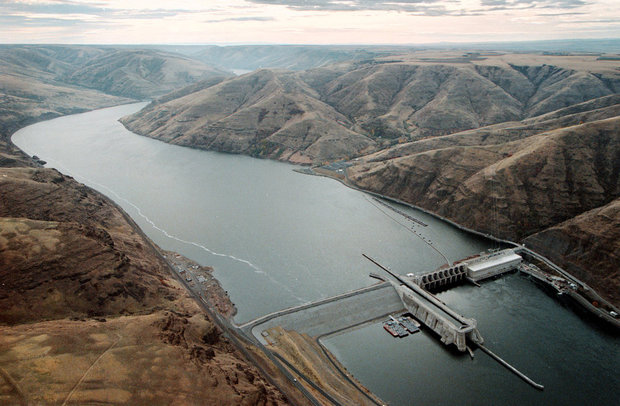forum
library
tutorial
contact

A Path Forward for Salmon,
Energy and Agriculture
by Wendy McDermott
Capital Press, November 16, 2020
|
the film forum library tutorial contact |

|
A Path Forward for Salmon,
by Wendy McDermott
|
 Up and down the Columbia and Snake rivers, salmon-dependent businesses are hurting. Tribes are suffering as many of the salmon runs they depend on for sustenance and culture are on the brink of extinction. Climate change is threatening our Northwest way of life, heating up our rivers and harming the health of our environment.
Up and down the Columbia and Snake rivers, salmon-dependent businesses are hurting. Tribes are suffering as many of the salmon runs they depend on for sustenance and culture are on the brink of extinction. Climate change is threatening our Northwest way of life, heating up our rivers and harming the health of our environment.
Given this reality, it is critical that we consider all options for salmon recovery, including the option scientists say would be most effective for Snake River salmon and steelhead: breaching the four federal dams on the lower Snake River in Washington.
American Rivers recognizes that salmon recovery is one of several interconnected goals. We also must ensure our region can enjoy clean, affordable energy. We must create jobs and strengthen our economy. And, we must address longstanding injustices. Instead of closing doors on our best options, we should be asking the questions: what kind of investment would be necessary to replace the energy the four lower Snake dams currently provide? What would we need to do to ensure irrigators can continue drawing water from the river? How would we replace barge transportation on the lower Snake and get goods to market?
We recognize there will continue to be a role for hydropower dams in the Pacific Northwest. American Rivers is working with representatives of the national hydropower industry and Stanford University to find common ground on the role of hydropower in addressing climate change while also protecting and restoring free-flowing rivers.
While we believe there is a continued role for hydropower, we know that some dams' costs outweigh their benefits. That is the case with Lower Granite, Little Goose, Lower Monumental and Ice Harbor dams on the lower Snake River. Based on their costs -- financial, ecological and cultural -- we support their removal.
The Columbia and Snake Rivers have provided an incredible array of benefits to the region including economically and culturally important salmon runs, electricity, water for agriculture, and a transportation system. Unfortunately, salmon populations are in freefall that is disproportionally harming tribes across the region. Uncertainty for Snake River-dependent agricultural producers and shippers hampers long-term planning and growth. A dramatically shifting energy landscape is putting the future of low-cost, reliable energy supplies at risk without strategic investment and modernizing Northwest energy policy.
A 2018 study by Energy Strategies LLC found that replacing the energy provided by the four lower Snake River dams with new clean sources would increase electric system reliability at a low cost while providing the best chance for fish restoration.
"The region can remove the four lower Snake River Dams and replace the power they provide with a portfolio of conservation and renewable energy resources while maintaining grid and transmission reliability at levels equal to or better than the current system and with little or no increase in greenhouse gas emissions," the study states.
More investigation is needed into how we can best replace the benefits of the lower Snake dams. We applaud the region's governors and tribes for spearheading this important dialogue. Now, we need our Northwest congressional delegation to listen to our region's diverse voices, including tribes, fishermen, farmers and energy interests, and help forge a collaborative, comprehensive solution. We believe we can recover salmon, meet federal treaty and trust responsibilities to Native American tribes, ensure clean, affordable energy and strengthen our economy.
It's time to move forward together.
learn more on topics covered in the film
see the video
read the script
learn the songs
discussion forum
